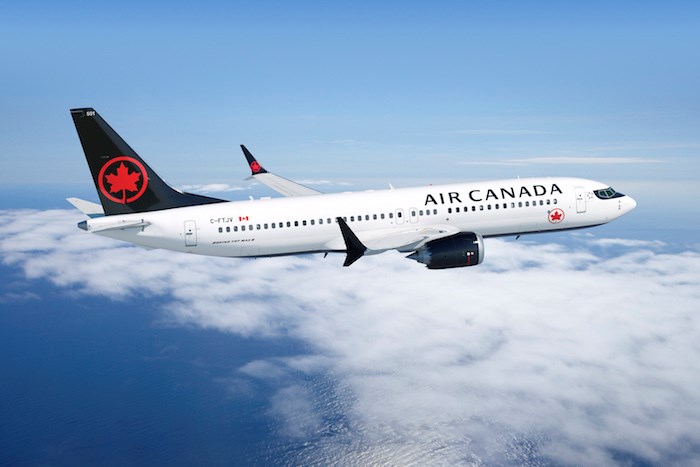B.C.’s Civil Resolution Tribunal has ordered Air Canada to pay three people $1,870 in negligence damages after ticket changes left them stranded on a Caribbean island.
In a Feb. 14 decision, tribunal member Christopher Rivers said Huibert Visscher, Sandra Sofia Broenink and Sofie Rose Visscher booked tickets to fly from Aruba to Vancouver, with stops in Charlotte, North Carolina and Toronto.
Rivers said Air Canada operated the final leg from Toronto to Vancouver. Due to a snowstorm in Toronto, Air Canada rebooked the trio on a new flight from Aruba to Vancouver, with stops in Chicago and Seattle.
However, the three claimed, despite apparently rebooking them, Air Canada did not issue tickets for the revised itinerary, leaving them stranded in Aruba until they could book a new flight.
Air Canada said it was not liable, saying it met its obligations under the Air Passenger Protection Regulations and its contract with the three. The airline further argued the group failed to take necessary steps to confirm the new itinerary, and that they did not suffer damages as they allege.
Air Canada asked that the claim be dismissed.
What happened?
Rivers said the three paid Air Canada and Air Canada agreed to fly them from Toronto to Vancouver as the final leg of a series of flights beginning in Aruba March 3, 2023.
On that date, they were scheduled to fly with American Airlines (AA) from Oranjestad, Aruba to Charlotte and then to Toronto. Air Canada would then fly the applicants from Toronto to Vancouver.
“Due to a snowstorm in Canada, Air Canada cancelled the applicants’ flight,” Rivers said.
On March 3, 2023, Air Canada emailed Visscher to say the three’s previous Toronto to Vancouver Air Canada flight had been changed to United Airlines (UA) Aruba to Chicago, UA’s Chicago to Seattle and Air Canada’s Seattle to Vancouver.
“The email showed three flights marked in orange as “Previous” – AA 875 (Aruba to Charlotte), AA 1745 (Charlotte to Toronto), and AC 103. The table also showed three flights marked in blue as “New” – UA 1650, UA 1046, and AC 8801,” Rivers said.
Throughout its submissions, Air Canada argued it was only responsible for the final leg of the trip, from Toronto to Vancouver.
Rivers said the airline accurately noted that the three had different itinerary numbers for the American Airlines and Air Canada legs of their flights. However, Air Canada sent the three an email advising of the change to all their flights.
“The email specifically addressed the original flights that would have been operated by American Airlines from Aruba to Charlotte to Chicago,” Rivers said.
“Despite this change being a fundamental and central issue to the dispute, Air Canada does not provide any explanation for what happened,” Rivers said. “It does not say if or how it cancelled the applicants’ original flights on American Airlines or how it chose to rebook the applicants on United Airlines.”
Airline obligation
Rivers said Air Canada said two things of the changed itinerary.
“First, Air Canada says its legal obligation was limited to rebooking the applicants on an alternate flight from Toronto to Vancouver,” the tribunal member wrote. “As the revised itinerary shows, it did not do that.”
Rivers said when a party fails to provide relevant evidence without sufficient explanation, an adjudicator is entitled to draw an adverse inference. That, he said, is where an adjudicator assumes a party has failed to provide relevant evidence because the missing evidence would not support their case.
“I make an adverse inference that Air Canada was responsible for the entire itinerary, even if the initial legs of the itinerary were operated by other airlines. In other words, I find Air Canada is responsible for the applicants’ entire flight, from Aruba to Vancouver,” Rivers said.
Visscher got the new itinerary and the three went to the airport on March 4.
“United Airlines was unable to check them in for their revised itinerary,” Rivers said. “The applicants say they attempted to contact Air Canada but were unsuccessful.”
The three arranged other plans and arrived in Vancouver 62 hours later than their original itinerary.
Rivers found Air Canada was liable for damages for expenses incurred after March 4, 2023 at 2:40 p.m., when their revised itinerary was set to begin.
“The total of the applicants’ receipts for hotel, food, and transportation during the relevant period is $1,374.61 U.S. dollars,” the tribunal ruled.



